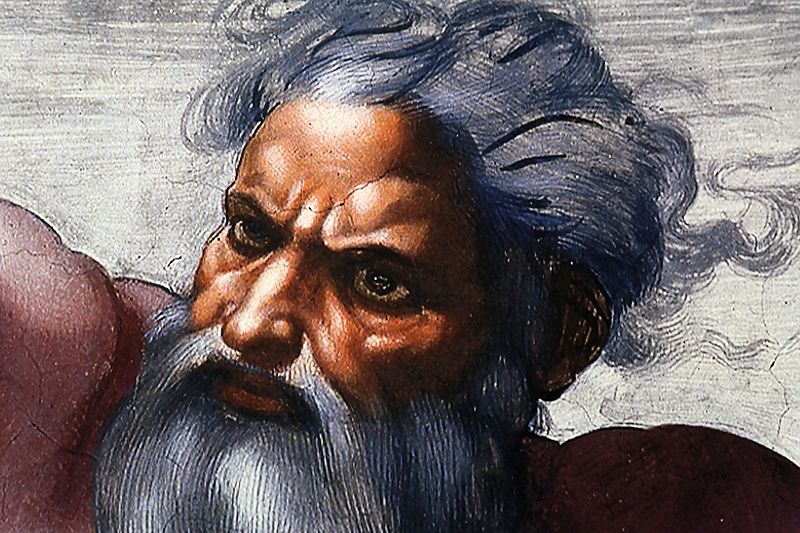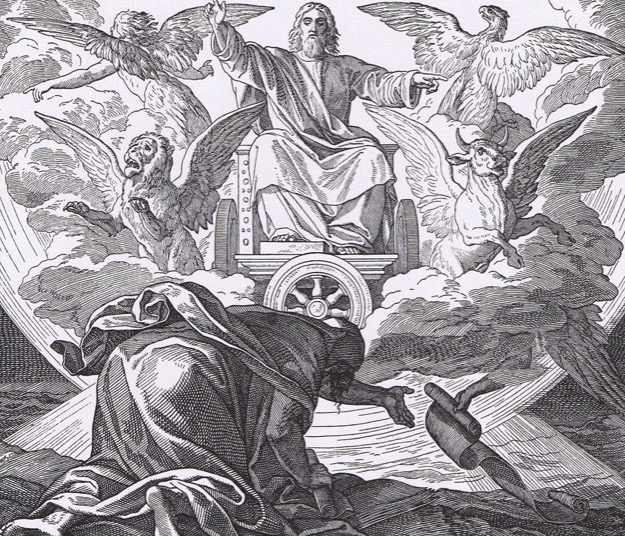By the end of the last surah (87), Muhammad was answering the question what people should do: fear (God), purify himself, and pray. This shifted away from the early part of the surah, which concerned Muhammad almost completely.
From the ahadith, it seems that most surahs throughout Muhammad’s life were revealed in smaller signs. The evidence of this piecemeal revelation is all over the text, and I’ll continue with the same pattern as before.
The First Revelation: Muhammad Gets More Praise
As per usual, Allah’s first concern is in bolstering the ego of his last prophet, showing pleasure at his business in Allah’s cause:
- By the night when it covers,
- And the day when it appears,
- And That Which created the male and the female,
- Indeed, your strivings are surely various.
The surah starts out with a conventional Arab formula of swearing by various things. Swearing by anything other than Allah or an aspect or a property of Allah is shirk, but Allah does this all the time, early on.
There’s a grammatical deficiency here–Allah is “that which,” not “he who,” here. The “male and female” might be a reference again to the pairing up of animals that Muhammad anticipates on the Great Day.
The Second Revelation: Assurances Extended and Charity Ordered
Now the same phrase “And We will ease you unto ease” from the last surah is paraphrased in two different versions here, one for Muhammad’s followers and another to his enemies.
- Then as for whoever gives and fears,
- And confirms the best,
- And We will ease (the way for) him unto (the state of) ease.
- And as for him who is stingy and is (fully) self-sufficient,
- And denies the best,
- Then We will ease (the way for) him unto hardship,
- And his wealth will not suffice him when he falls headlong.
Here, for the first time, we get a really clear moral command (other than praying, purifying, and fearing) what Muhammad’s followers should actually be doing to prepare for the Great Day, and that is to be charitable with their money. Anyone who doesn’t heed will be condemned to hell.
The Third Revelation: More Warnings to Unbelievers
- Indeed, upon Us is surely the guidance.
- And indeed, for us is the Hereafter and the first,
- So I warn you of a flaming Fire.
- None will burn in it except the wretched:
- He who denied and disassociated (himself).
- But the fearing one will be removed from it:
- He who gives his wealth to purify himself.
We then get more condemnations of the “wretched” for a while before we switch back again to reassurances–and we also here get the explicit association between charity and purification, which is what his followers were told to do in surah 87.
Yes, the verb tenses actually do skip around–we have past in ayah 16 and the imperfect (which is like the present) in 18. This is just another deficiency of the text of the Quran.
The Fourth Revelation: Allah’s Face
The last three ayat seem to be a postscript, which frequently pops up at the end of surat. They’re almost platitudes except that their content is quite peculiar.
- And not (for) any of his favors to be rewarded by anyone,
- Except seeking the Face of his Lord, the highest.
- And surely, soon he will be pleased.
Ignoring the clumsy grammar of ayat 19 and 20, which is caused by forced rhyme, we have the “Face of his Lord.” For everything that I can determine, this phrase was always understood to be an actual face by early Islamic scholars. It does not appear, either in the text or in other early sources, to mean a poetic sort of attention. This calls to mind the Merkabah vision that Muhammad just had–seeking a vision of the face of God was entirely reasonable for mystics involved in these activities. At this stage in Muhammad’s prophethood, he could very well be promising really faithful followers their own mystical visions of the Lord–who, despite my naming him as “Allah” throughout this article, is still anonymous, as far as Muhammad has told his followers.
This meaning is so uncomfortable that some translators feel compelled to add a gloss saying that the man will be pleased by entering the Garden to counter the obvious meaning that he’ll be pleased by seeing the face of Allah. There is no textual support for this gloss. Some go even farther by altering Allah’s face so that it becomes another word entirely. This is also incorrect.
Muhammad’s face is just one of Allah’s many human attributes that are still taken with literal seriousness by many Islamic scholars.
Ironically, though Christians have painted images of Yahweh (the Godhead) in the shape of a man, no Christians believe (any more than Jews) that Yahweh has an actual body, and so the representations are fully symbolic. (Christians do, of course, believe that Jesus Christ does have an actual body, though is transcendent except during the period of Jesus’ incarnation.)





